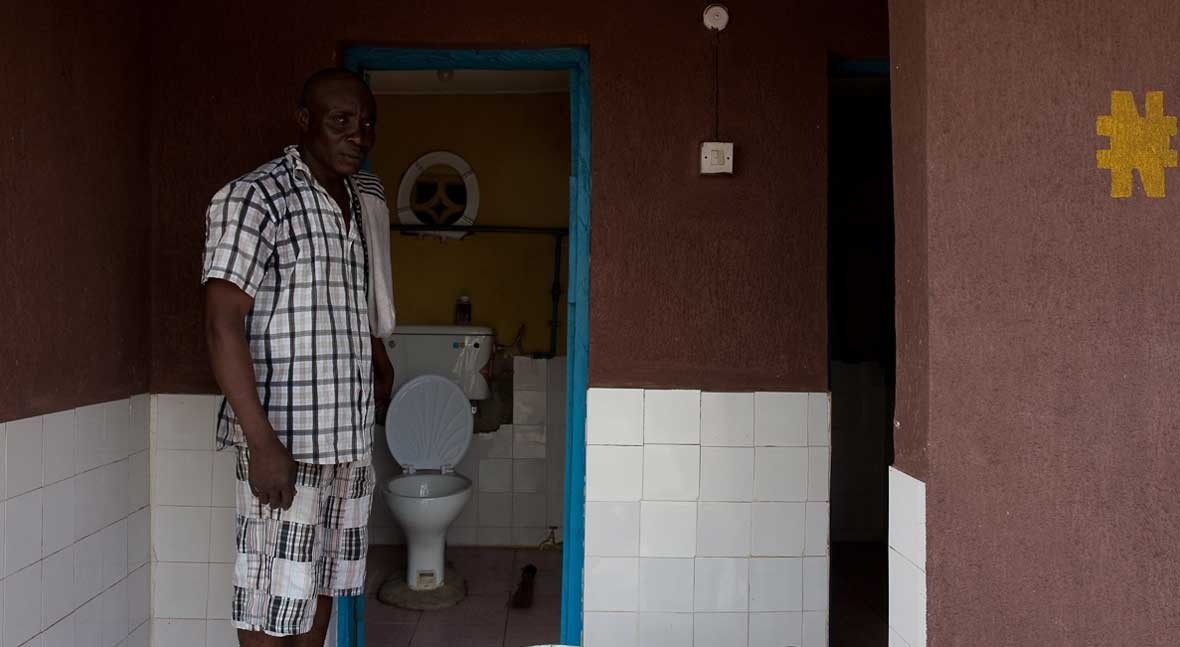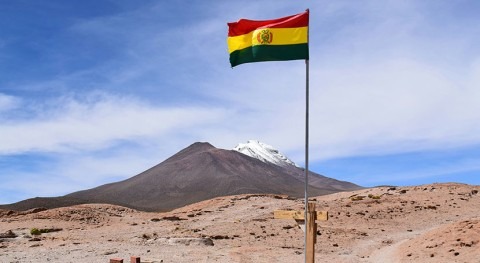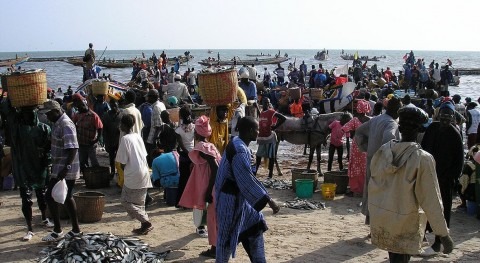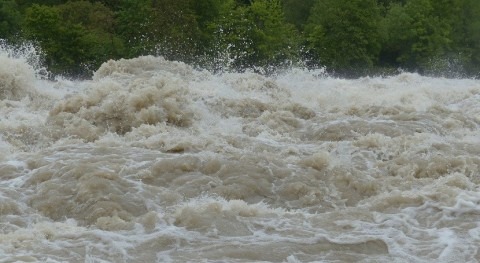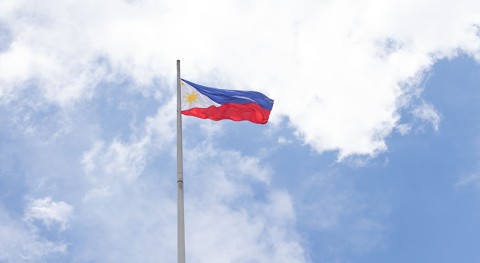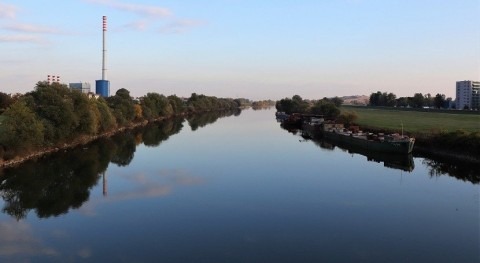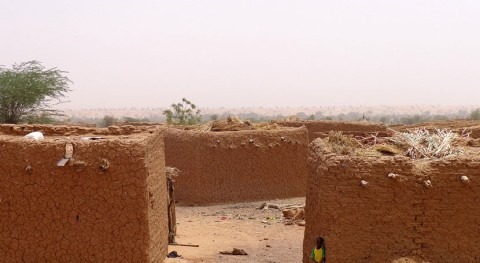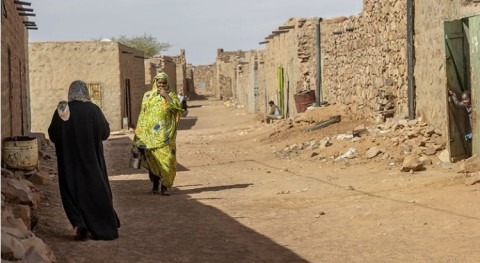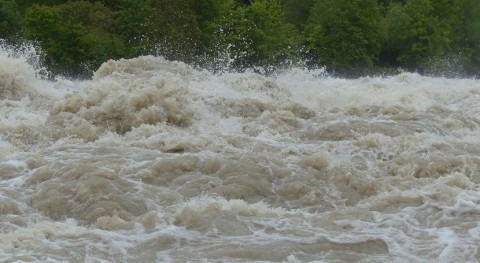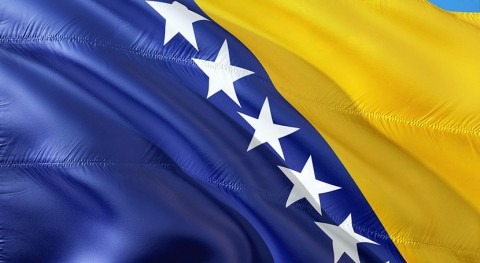World Toilet Day was celebrated worldwide on 19th November. This annual global event organized by United Nations is about inspiring action to tackle the global sanitation crisis and about shedding light on the 4.2 billion people currently living without safely managed sanitation.
We spoke with Ndeye Awa Diagne, Young Professional in the World Bank's Water Global Practice, to learn about the recent work being carried out by the world’s largest multilateral source of financing for water in developing countries.
Question: Firstly, we would like to know briefly your career path and your current role in the World Bank.
Answer: I started my career at the World Bank as a Junior Professional Associate supporting the preparation and implementation of water supply and sanitation investment projects in Latin America and the Caribbean. Afterwards, on leaving the Bank, I worked for two years for the Senegalese National Water Company on urban water supply infrastructure projects. I subsequently re-entered the World Bank as a Young Professional in the Water Global Practice where I have been working for the last year primarily on water supply and sanitation investment projects in Africa and on our global sanitation agenda.
Q: What is the World Bank’s role in promoting World Toilet Day?

A: As part of UN- Water, the World Bank promotes World Toilet Day, which is an opportunity for us to pause and remind ourselves of the need to achieve access to adequate and equitable sanitation for all by 2030 and the urgent actions that should be taken for us to get there. The World Bank aims to raise awareness and inspire action to tackle the global sanitation challenge – a topic often neglected and shrouded in taboos. As you know, billions of people still lack access to basic sanitation services. If you have a toilet at home, you are luckier than the 2 billion people around the world who still lack access to this most basic of amenities. If you have a toilet that is linked to a system that safely conveys, treats and disposes of your household’s waste, you are luckier than the 4.2 billion people who do not have safely managed sanitation.
Q: What do you think are the main challenges in water and sanitation?
A: There are many challenges in the water and sanitation sector. The reality in developing country cities and rural areas is complex and challenges span a broad spectrum of issues beyond technical aspects, which include policies, fragmented institutions, limited financing, weak regulation, the political economy, climate change and social norms.
Q: The World Bank has released a report with the International Labour Organization, WaterAid and the WHO on sanitation workers. Can you tell us a bit more?
A: We collaborated with the International Labour Organization, WaterAid and the World Health Organization to author the report “Health, Safety and Dignity of Sanitation Workers – An Initial Assessment.” The report was released ahead of World Toilet Day. This is the first global effort to draw attention to an often-neglected issue and to undertake advocacy regarding the conditions of sanitation workers in developing countries, while identifying ways to improve their lives and wellbeing. The report is available here: https://openknowledge.worldbank.org/handle/10986/32640
Q: Why is it important to shed light on sanitation workers?
A: Sanitation workers provide a fundamental public service. They are the men and women who empty our pits and septic tanks, clean our toilets, sewers and manholes, and operate pumping stations and treatment plants. Yet they often face extreme health hazards and safety risks on the job. In many developing countries, they are informal workers with no legal protections or rights. With a lack of visibility in society, they can be stigmatized, marginalized and ignored.
Sanitation workers provide a fundamental public service
Q: What other activities does the World Bank carry out related to water and sanitation?

Credit: World Bank
A: The World Bank is the world’s largest multilateral source of financing for water in developing countries. With a portfolio of water investments of almost USD 30 billion and a staff of hundreds of water experts across the world, the Water Global Practice aims to deliver its vision of a Water Secure World for All through three inter-related pillars: (1) sustain water resources, (2) deliver services, and (3) build resilience. For more information on our work, please visit our website https://www.worldbank.org/en/topic/water.
Q: With regard to the World Toilet Day, why do you think it is necessary to highlight the marginalized groups’ difficulty in accessing safe toilets?
A: It is paramount to highlight the difficulties marginalized groups such as women, the elderly or the disabled face in accessing safe toilets because they are often not considered when preparing and implementing projects. Their needs are not always taken into consideration when designing toilets. Moreover, investing in water, sanitation and hygiene (WASH) in schools is fundamental to reduce inequalities between adolescent girls and boys. A mindset shift is needed for more inclusive approaches to providing safe toilets. We must strive to leave no one behind in the sector.
A mindset shift is needed for more inclusive approaches to providing safe toilets
Q: Lastly, what more can be done to reach everyone with safe water and sanitation by 2030?
A: We are facing a deeply troubling situation and the SDGs challenge us with their ambitious goals. Our experience has shown that “business as usual” will not resolve the current water and sanitation crisis. We need to shift the paradigm on how we implement projects and programs, paying special attention to the policy, funding, regulatory and institutional frameworks of service provision, on the one hand, and to the needs of women and girls and those in vulnerable situations, on the other. We need to further promote collaboration among sector actors and support countries with cross-sectoral and context-specific solutions, reliable data, knowledge and know-how. And we need to spread good examples of sustainable water supply and sanitation service delivery from one side of the world to the other.


